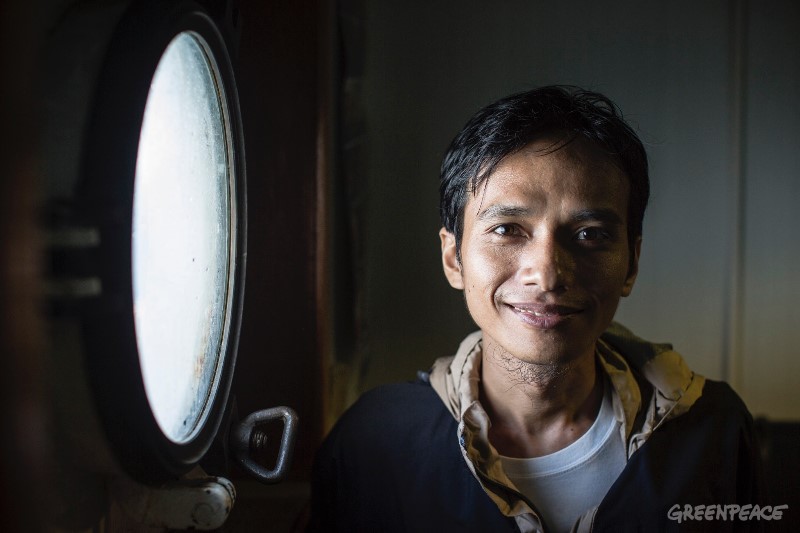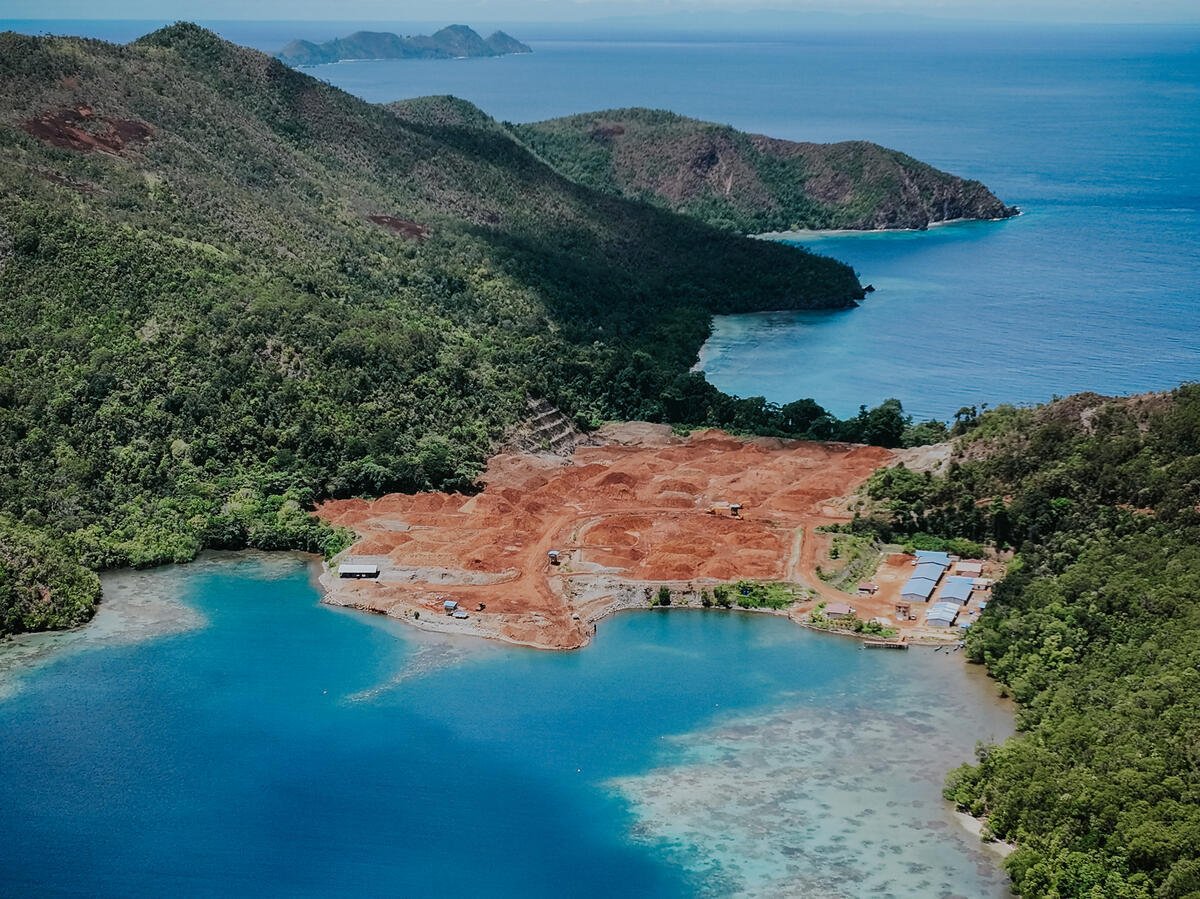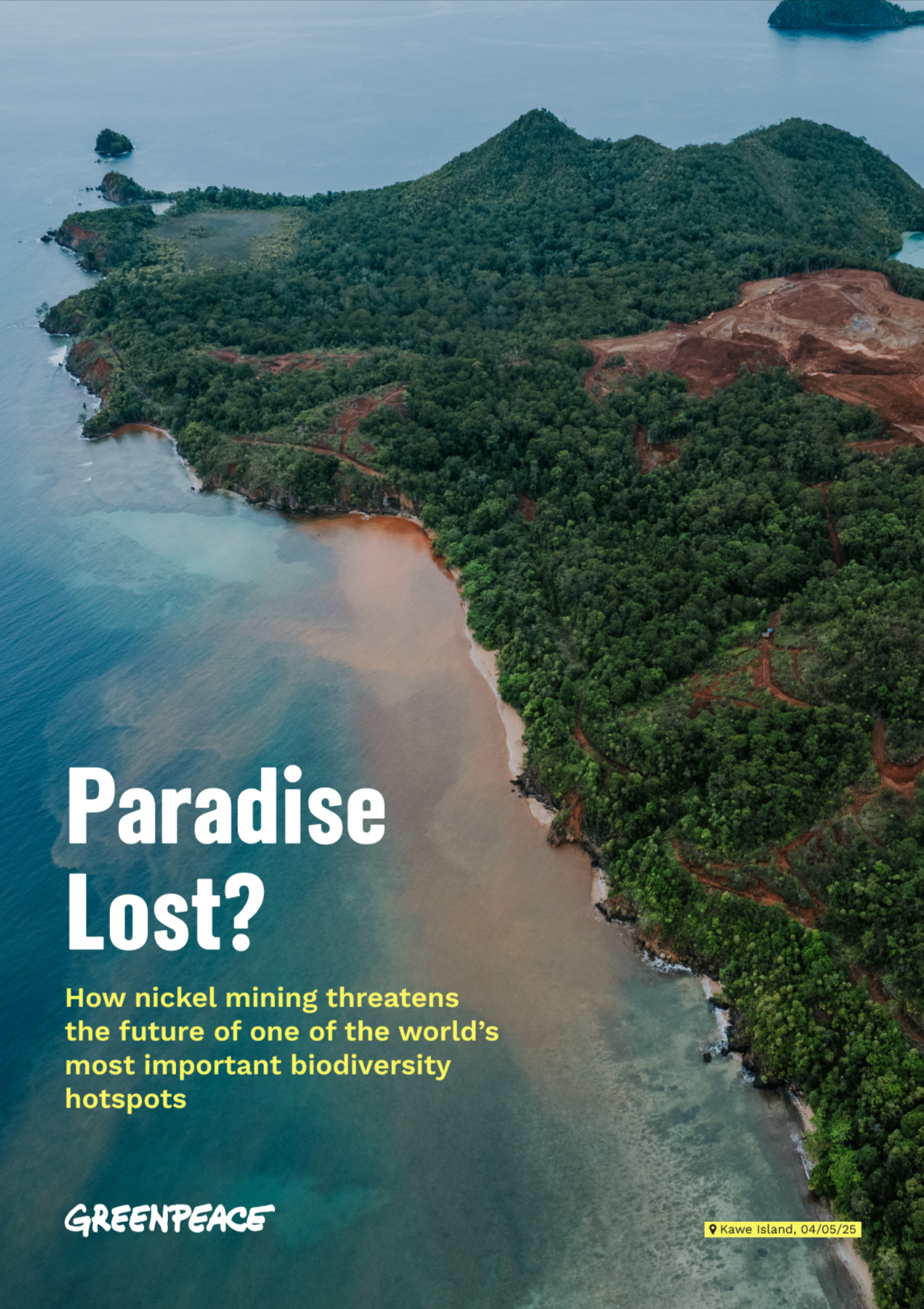Tuna is probably the most popular seafood commodity out there. People eat it for a number of reasons, mostly as a convenient and healthy snack. But did you know that the biggest tuna brand in the world hails from our part of the world? Thailand to be exact.

Some of the most famous canned tuna brands sold in the world is owned by Thai Union such as Sealect in Thailand, John West in the UK, Petit Navire in France and Chicken of the Sea in the US. These brands have made Thai Union the market leader on all things tuna. Unfortunately, Thai Union is also the leader of the pack when it comes to trashing our seas, which brings me back to my Esperanza mission.
Right now, the Esperanza crew and I are on the watch in the Western Indian Ocean where much of the world’s tuna is sourced. I’ve seen awesome things- wonderful views and amazing sea life! But also, I’ve seen a lot of trash out there. They’re called fish aggregating devices or FADs. They’re man-made devices—usually in the form of bamboo, but they also include plastic nets and electronic beacons made up of plastic, metal and batteries— that are deployed at sea by purse seine fishing vessels to help lure and catch hundreds of tons of fish. Once fish are attracted by FADs, they gather around it until big purse seine nets (in the shape of purses) scoop and haul them.
The problem with FADs it that they also attract marine life of all shapes and sizes- from juvenile tuna species to sharks and turtles! In fact, the FADs we’re finding and pulling out of the Indian Ocean can be traced to Thai Union and their suppliers. These FADs result in an estimated 104,000 tonnes of by-catch of tunas, sharks, billfish and other animals being caught and then discarded back into the sea – dead or dying – every year.
Most of the FADs deployed in the Indian Ocean are the drifting type. They’ll be floating indefinitely since there are no guarantees that they will be taken back by the vessels that leave them. The Pew Trust’s report in 2012 estimated that every year there are at least 47,000 drifting FADs deployed around the globe. Believe me, these FADs look like floating trash and if you multiply them by the tens of thousands, it is not a pretty sight. It’s bad enough that FADs made with plastics don’t biodegrade, while those with batteries are a life-threatening toxic hazard. Worse, these FADs wash up on beaches and get caught in coral reefs where they are left unrecovered.
This continuous FADs deployment by boats that catch fish for Thai Union and by the other tuna players will not only overfish our tuna stocks like skipjack and yellowfin, but will also increase the by-catch leading to more loss of sea life. The other consequences of uncontrolled FADs deployment will also increase marine debris in the oceans.
That is why Greenpeace and consumers all over the world are calling on Thai Union to clean up their supply chain by getting rid of destructive FADs that not only harm the marine environment, but also threaten the sustainability of our oceans. We’re also challenging Thai Union to treat their laborers fairly and make sure that they are not subjected to rights abuses.
So the Espy crew and I will continue to keep watch to mount more pressure on Thai Union to be the leaders of change in the tuna industry. As the biggest canned tuna processing industry in the world, Thai Union is clearly responsible for oceans destruction through their FADs used by purse seine vessels. Until they make necessary steps and ensure that their tuna supply chain is clean from any traces of destructive fishing and human rights abuses, Greenpeace will continue to remind Thai Union to stop trashing our oceans.



